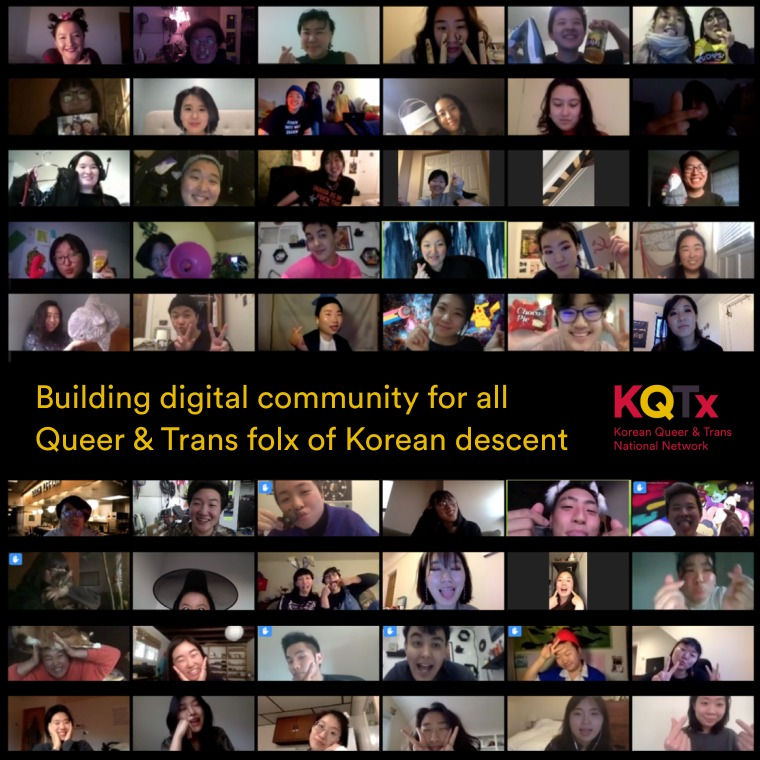Envisioning Liberation Past & Present
- Admin
- Sep 3, 2020
- 4 min read
Envisioning Collective Liberation
Yu Gwan-sun took an active part in the March 1, 1919, independence movement against Japanese colonial rule in Korea. Dying in prison at 17, she became a national hero. Credit: NY Times
In August, KQTxNYC hosted “Together Apart: A Reflection Space on Reunification, Independence, and Liberation”
Honoring Past Liberation Struggles
August 15th, marked the National Liberation Day of Korea from Japan's occupation (1884-1945). In South Korea it is known as Gwangbokjeol (광복절, "The Day the Light Returned"). In North Korea it is known as Chogukhaebangŭi nal (조국해방의 날; Liberation of the Fatherland Day). It is notable for being the only Korean public holiday celebrated by both South Korea and North Korea.
Last month, Olivia Ahn (KQTxNYC), a third-generation Korean and Chinese American community-based care practitioner, created and facilitated Together Apart: A Reflection Space on Reunification, Independence, and Liberation in observance of the 75th National Liberation Day of Korea. Participants from all over the globe dialed in to unpack the meaning of this day together, and to envision: “What would a liberated Korea look like to you?”
Image: A participant led google slide from "Together Apart: A Reflection Space on Reunification, Independence, and Liberation in observance of the 75th National Liberation Day of Korea." The round taegukgi symbols are an indicator of collective resonance.
To provide context and grounding, Olivia shared a comprehensive history of Korea's colonization and the hard-fought journey towards liberation. They acknowledged the many independence fighters and activists who made this movement possible, including their kin and great uncle, Ahn Jung-geun, and the fierce 17-year-old independence activist, Yu Gwan-sun.
As the space came to a close, there was time for participants to remember their own kin, their own chosen family, and ancestors in a digital altar space. For those who were not able to attend, Olivia has generously provided a simple way for you to prepare a remembrance space of your own at home:
Name and honor any ancestors, movement ancestors, or ancestral kindred who have inspired you and who you are grateful for in your Korean Queer Trans experience, lineage, and/or as an indigenous, diasporic person of Korea. (Note: They do not necessarily have to be blood-related to you or of Korean descent).
If you are so moved, you may simply hold space for them in your heart and spirit, or set an offering in their name at your altar space today (i.e., a piece of fruit, a sweet, a lit incense or candle, a love letter).
"When I ask these questions about the reunification and liberation of Korea, I turn to ancestors that I am spiritually bound through relation and non-relation by blood, heritage, and lineage. Today on Gwangbokjeol 광복절, do not just celebrate our liberation from Japan that was merely short-lived, but also deeply acknowledge and fight for the liberation that is still due unto us."
A Step Toward Liberation Today: Preparing for the November Elections
In two months, we face one of the most important elections in our lives. The November 3 US elections will determine how queer/trans Koreans, our families, and our allies may survive the COVID-19 pandemic and how we will have access to immigration, jobs, health care, trans and queer rights, and safety in our communities.
We encourage you to learn your voting rights, get involved, and support others in accessing voting options, especially as mail-in ballots may become available a safer option in your area. Please read the options below. Register to vote!
National Mail Voter Registration Form -- English
전국 우편 유권자 등록 양식 -- Korean
Key dates to remember
Sept 24: National Voter Registration Day
Oct 5: Last day to register to vote in most battleground states (GA, FL, TX)
Nov 3: Election Day
Voting by Mail
NYT: Will you have enough time to vote by mail in your state?
Get involved
Ready to do more? Help reach key voters through outreach like phone banking and text messaging with like-minded people. Sign up with Seed the Vote.
Reading Recommendations
Many of us have been spending our time sheltering in place getting lost in a book. Here are two exceptional recommendations for your next read. Interested in discussing more? Check out the #reading-recs channel on the KQTx Slack!
Chuseok: Celebration of Harvest and Abundance

Talchum (탈춤) or t'alch'um could be characterized as a Korean dance performed while wearing a mask, mimicry, miming, speaking and even sometimes singing.
One of Korea’s three major holidays, Chu-seok is the 8th month of the lunar year and is also called "hangawi". In the past, families would gather together to enjoy time together and give thanks for a bountiful harvest. Traditional celebrations such traditional folk games such as samulnori (traditional percussion quartet), talchum (mask dance), ganggangsullae (Korean circle dance), and ssireum (traditional Korean wrestling) alongside special foods like songpyeon, a traditional rice cake made with finely ground new rice and filled with sesame seeds, chestnuts, or red bean, are commonly associated with this holiday. Other traditions include visiting ancestors’ graves and holding charye (memorial services) for them. Recently, a modern tradition of gift giving has become popular in Korea as well, echoing the traditions of appreciation for those around you.
How will you celebrate and appreciate Chuseok this year?











Comments